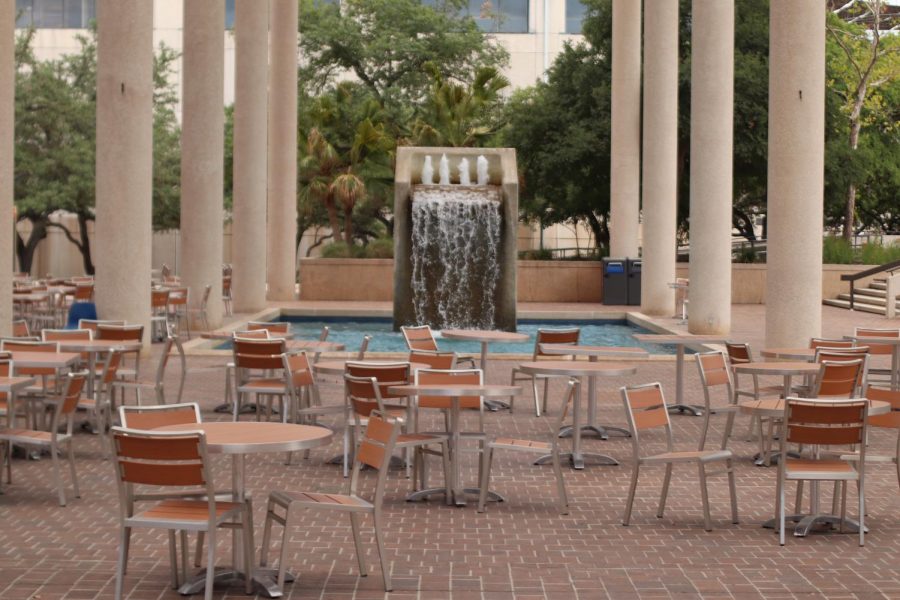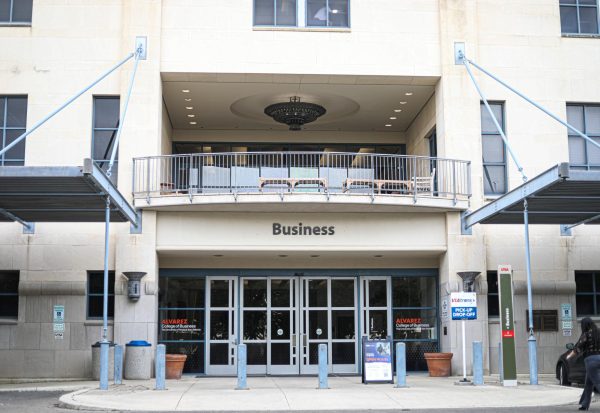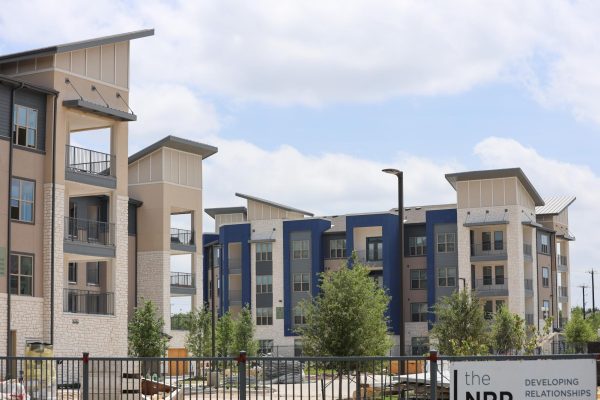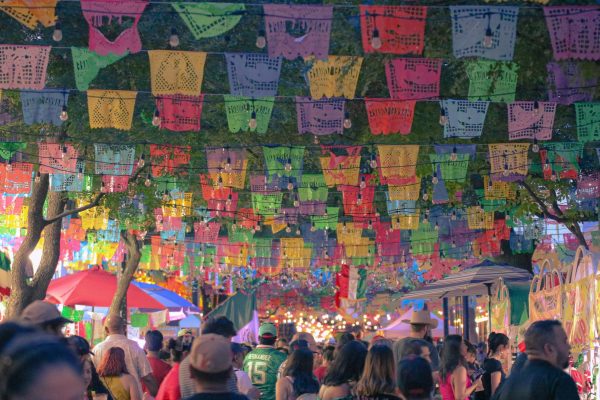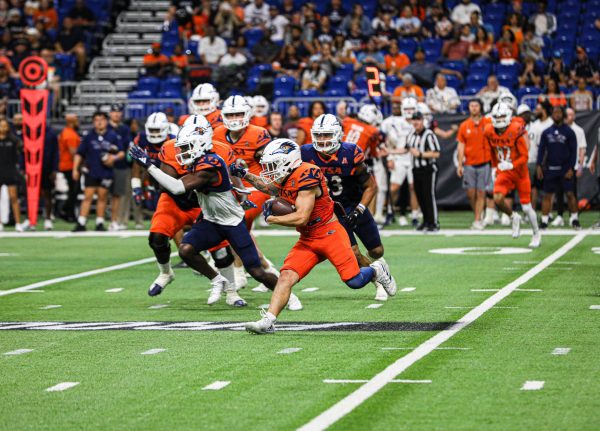UTSA announces COVID-19 testing for symptomatic students in new Public Health Task Force report
The Sombrilla Plaza fountain in front of the John Peace Library. Student Health Services will offer COVID-19 testing to symptomatic students, according to the new report from the Public Health Task Force.
August 12, 2020
UTSA will offer COVID-19 testing to symptomatic students through Student Health Services (SHS), according to a new report released by the Public Health Task Force (PHTF) on Tuesday.
The report did not say when COVID-19 testing would become available or how much it would cost. As of Wednesday, the SHS website says that SHS “does not have access to tests for COVID-19,” and the university did not immediately respond to a request for comment on when tests would be available or how much they would cost. Free COVID-19 tests will be offered by other Texas universities such as UT Austin and UT El Paso. The PHTF report also said “group COVID-19 testing clinics for asymptomatic students and employees will be available at nearby facilities,” but it did not describe what a group COVID-19 testing clinic is or where the facilities would be. The health section of UTSA’s coronavirus FAQ page still says that mass testing for COVID-19 is “not feasible or practical” at this time.
UTSA will act as a Point of Dispensing for Metro Health once a vaccine for COVID-19 becomes available, according to the report. This means that UTSA will facilitate the disbursement of a future vaccine at the university.
The report offered a way for members of the community to report others who violate the mandate to wear masks in all indoor spaces and outdoor environments where social distancing is not possible: a compliance hotline. Reporting is intended to be the final step in the “Ask, Offer, Leave and Report” method the PHTF lays out. The method explains that individuals should first ask noncompliant individuals whether they are aware of the mask mandate, offer to give them a mask if they do not have one, leave or ask the individual to leave, and, finally, report individuals who continue to be noncompliant. The student code of conduct or applicable employment policies will be used to enact disciplinary action if deemed necessary, according to the PHTF.
Wearing masks is the first component of UTSA’s Do Your Part campaign, which is designed to prevent the spread of COVID-19 on campus. Masks are important to prevent the escape of respiratory droplets, which can contain the virus and infect others, according to the U.S. Centers for Disease Control (CDC).
According to the task force report, daily health self-assessments to monitor potential COVID-19 symptoms will be required for all students, faculty and staff, who can use UTSA’s online COVID-19 health self-assessment tool, which asks if an individual has exhibited a list of COVID-19 symptoms or if they have been in close contact with someone who has the disease. The PHTF does not offer a mechanism to enforce the requirement.
In the event that someone in the UTSA community tests positive for COVID-19, the university has plans in place to work with Metro Health to use contact tracing, a process that involves identifying and notifying people who have recently been in close contact with someone who has COVID-19, to limit the spread.
Students, faculty and staff who test positive for COVID-19 will not be allowed to return to in-person courses or campus facilities or end their isolation until they meet the CDC’s criteria to end home isolation, according to the report. The CDC criteria to end isolation include: at least 10 days since symptoms appeared, or, for someone without symptoms, since their positive COVID-19 test was performed; an improvement in symptoms; and at least one full day since recovery, which is defined as the resolution of fever without the use of medication. Individuals with known close contact to a person who has COVID-19 must also undergo a 14-day isolation away from campus. UTSA has reserved some on-campus residential space to isolate or self-quarantine students who need it.
Numerous changes have been made to on-campus housing arrangements in an effort to protect students and staff. Overall housing capacity will be under 75%, bedrooms will only have one resident each, ventilation in rooms and common spaces will be altered to increase the circulation of outside air and cleaning supplies will be provided. Residents and staff are also required to undergo an orientation before moving in. The move-in process is also being altered, with students choosing time slots over an extended period of days to move in so as to limit the number of people in one place at one time.
The university will also be placing clear plastic barriers in high-traffic areas where social distancing will not be possible, and Education and General departments can submit requests for additional barriers that will come at no cost to the department.
All on-campus events will be considered on a case-by-case basis and will be entered into an online system for tracking and oversight, according to the PHTF report. The university will also limit nonessential visitors, volunteers and activities involving external organizations or groups on campus. It is not clear whether this will conflict with Senate Bill 18, which allows outside individuals to express speech on UTSA’s campus.
Face-to-face mental health counseling will only be available on an “extremely limited basis” to protect students and counselors, the report said, but students will have access to telehealth services over the phone or by using video and will be able to engage in video conference groups and workshops.
The PHTF is also advocating for students, faculty and staff to get vaccinated against the seasonal flu early this year, and UTSA is planning to host on-campus clinics in September that will offer flu vaccinations.

